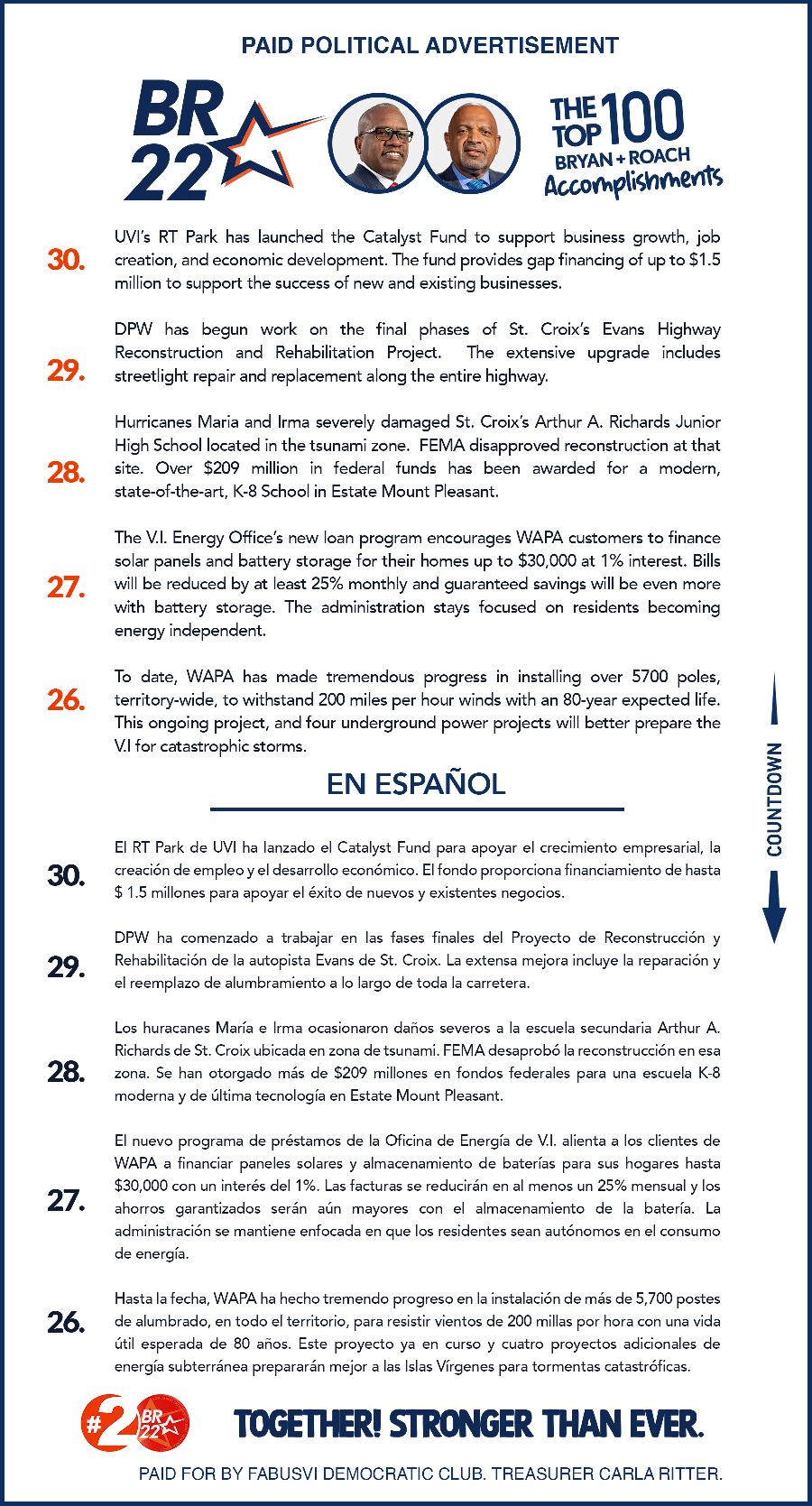President Trump signs executive order aimed at diminishing election fraud by requiring proof of citizenship to vote in federal elections. Proof of citizenship is required to vote in U.S. Virgin Islands elections.
President Donald Trump’s latest executive order, signed on March 25 and titled "Preserving and Protecting the Integrity of American Elections," is at the center of a growing legal battle after a coalition of Democratic political organizations and advocacy groups filed lawsuits seeking to block its implementation. The plaintiffs argue that the order unlawfully imposes new federal requirements on voter registration, including a mandate that individuals provide documentary proof of U.S. citizenship in order to vote in federal elections.

The executive order directs sweeping changes to the federal election process. Among its provisions, it requires that anyone registering to vote in a federal election must present approved documentary proof of citizenship. Accepted documents include a U.S. passport, Real ID, military ID, or a valid federal or state identification card. Birth certificates and Tribal-issued identification are not accepted under the order. Proof of citizenship is required to vote in U.S. Virgin Islands elections.
The order also ties receipt of federal election funding to a new requirement that all mail-in ballots must be received by Election Day, overturning existing laws in 17 states that currently allow ballots postmarked by Election Day to be counted if received later. Additionally, the executive order directs federal agencies, including the Department of Defense, to update military and overseas voter registration forms—known as the Federal Post Card Application—to include the new proof-of-citizenship requirement.
The Trump administration argues that the order is necessary to prevent noncitizen voting in federal elections. “Free, fair, and honest elections unmarred by fraud, errors, or suspicion are fundamental to maintaining our constitutional Republic,” the order states. It also directs federal agencies to assist states in verifying voter eligibility by sharing immigration and Social Security data, and includes language restricting foreign influence in elections and promoting paper-based voting systems.
On March 31, a coalition of Democratic political organizations filed a 70-page lawsuit in U.S. District Court in Washington, D.C. seeking to block the implementation of the order. Plaintiffs in the suit include the Democratic National Committee (DNC), the Democratic Governors Association (DGA), the Democratic Congressional Campaign Committee (DCCC), the Democratic Senatorial Campaign Committee (DSCC), and Democratic congressional leaders. They are represented by election attorney Marc Elias and the Elias Law Group.
The lawsuit argues that the president does not have the constitutional authority to impose a proof-of-citizenship requirement for voter registration in federal elections, and that the order infringes upon powers that the U.S. Constitution reserves to the states and Congress. “In the United States of America, the President does not get to dictate the rules of our elections,” the lawsuit states. It claims that the order reflects President Trump’s personal grievances and contains no legal justification for the sweeping changes it proposes.
A separate lawsuit was filed the same day by Democratic-aligned advocacy organizations, including the Campaign Legal Center and the State Democracy Defenders Fund, on behalf of League of United Latin American Citizens (LULAC), the Secure Families Initiative, and the Arizona Students’ Association. That lawsuit similarly seeks to block enforcement of the proof-of-citizenship requirement and other provisions of the executive order. The plaintiffs argue that the new rules could disenfranchise millions of eligible voters who do not have the necessary documents.
According to the lawsuits, over 21 million eligible U.S. citizens lack passports or Real ID-compliant identification. Many military IDs also do not indicate citizenship, potentially affecting service members and overseas voters. Both suits claim that the new voter ID requirements will burden voters who have historically relied on state laws that do not require documentary proof of citizenship.
The lawsuits also challenge Trump’s changes to mail-in voting. Seventeen states currently allow mail ballots to be counted if postmarked by Election Day but received afterward. The executive order mandates that ballots be received by Election Day to be valid for federal elections—a change the lawsuits argue the president cannot legally make. “The President cannot override state laws on ballot receipt deadlines,” the Campaign Legal Center’s filing states.
Under Article I of the Constitution, state legislatures determine the "time, place, and manner" of elections, with Congress authorized to override those rules for federal elections. The plaintiffs argue that the president has no constitutional role in establishing election procedures and that the order violates the principle of separation of powers.
The lawsuits further claim that the order's directive for federal agencies to cross-reference immigration and Social Security data with state voter rolls could result in errors and wrongful removal of eligible voters.
Noncitizen voting in federal elections is already illegal under federal law. Studies consistently show that such incidents are extremely rare. A Brennan Center for Justice study of the 2016 election found only 30 suspected noncitizen votes out of more than 23 million ballots cast—roughly 0.0001%. A Cato Institute report also concluded that noncitizen voting does not occur in numbers that would affect election outcomes.
Despite these findings, Republican officials have expressed support for the executive order, viewing it as a preventative measure. In testimony before Congress, Ohio Secretary of State Frank LaRose said his office identified 135 noncitizens who had voted and another 400 who were registered but had not voted. He compared the order to the existence of airport security: “It’s illegal to hijack airplanes, but we don’t get rid of the TSA.”
The legal challenges are still in early stages, and both lawsuits request that the court block implementation of the executive order while the cases are litigated. Additional legal actions are expected in the coming weeks, with Democratic state attorneys general and organizations like the ACLU considering further steps.

The courts will now decide whether the president’s executive order requiring proof of citizenship to vote in federal elections and other changes can stand—or whether it violates constitutional limits on executive power. As of now, the battle over voter eligibility requirements and federal election authority is unfolding in real time.










